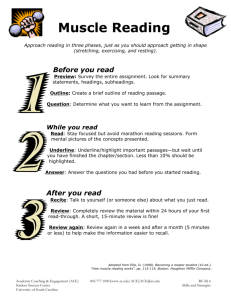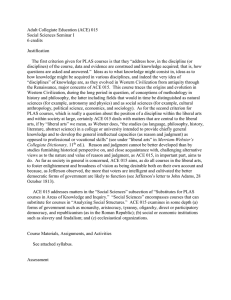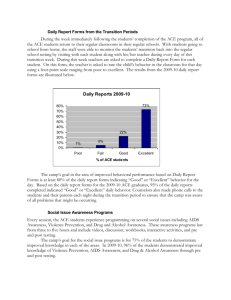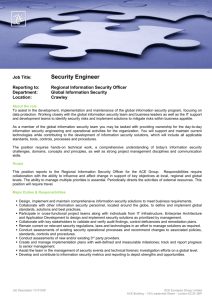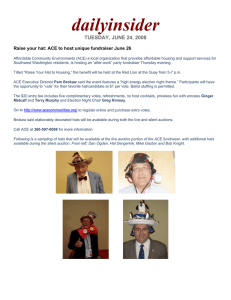Adult Collegiate Education (ACE) 016 Social Sciences Seminar II 6 credits
advertisement
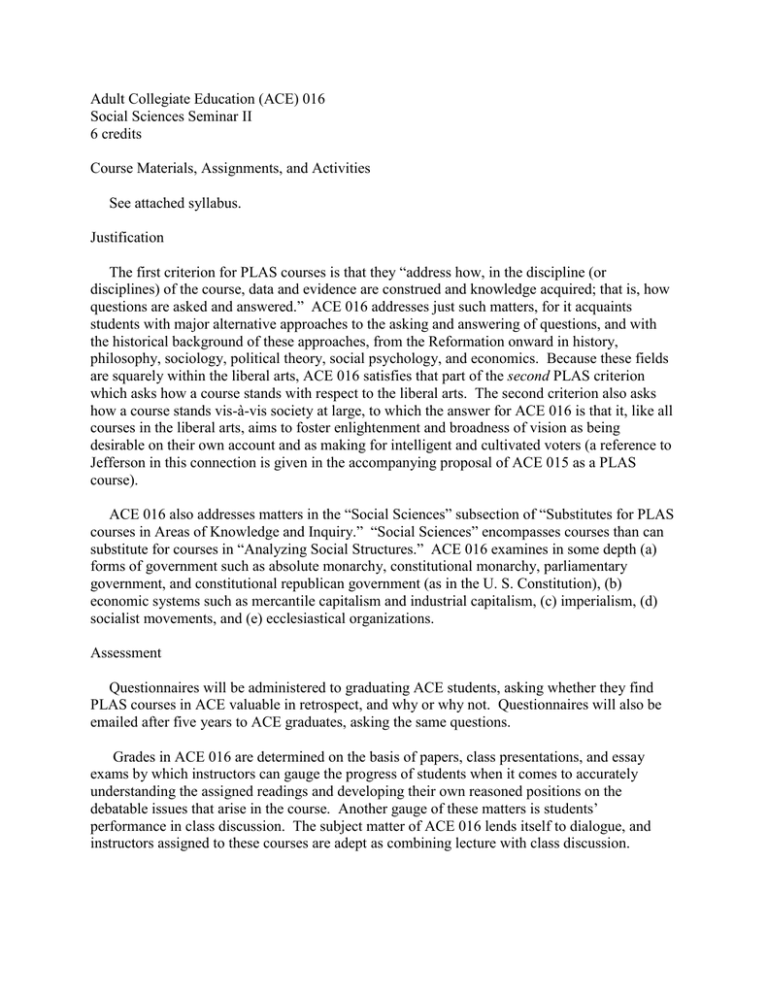
Adult Collegiate Education (ACE) 016 Social Sciences Seminar II 6 credits Course Materials, Assignments, and Activities See attached syllabus. Justification The first criterion for PLAS courses is that they “address how, in the discipline (or disciplines) of the course, data and evidence are construed and knowledge acquired; that is, how questions are asked and answered.” ACE 016 addresses just such matters, for it acquaints students with major alternative approaches to the asking and answering of questions, and with the historical background of these approaches, from the Reformation onward in history, philosophy, sociology, political theory, social psychology, and economics. Because these fields are squarely within the liberal arts, ACE 016 satisfies that part of the second PLAS criterion which asks how a course stands with respect to the liberal arts. The second criterion also asks how a course stands vis-à-vis society at large, to which the answer for ACE 016 is that it, like all courses in the liberal arts, aims to foster enlightenment and broadness of vision as being desirable on their own account and as making for intelligent and cultivated voters (a reference to Jefferson in this connection is given in the accompanying proposal of ACE 015 as a PLAS course). ACE 016 also addresses matters in the “Social Sciences” subsection of “Substitutes for PLAS courses in Areas of Knowledge and Inquiry.” “Social Sciences” encompasses courses than can substitute for courses in “Analyzing Social Structures.” ACE 016 examines in some depth (a) forms of government such as absolute monarchy, constitutional monarchy, parliamentary government, and constitutional republican government (as in the U. S. Constitution), (b) economic systems such as mercantile capitalism and industrial capitalism, (c) imperialism, (d) socialist movements, and (e) ecclesiastical organizations. Assessment Questionnaires will be administered to graduating ACE students, asking whether they find PLAS courses in ACE valuable in retrospect, and why or why not. Questionnaires will also be emailed after five years to ACE graduates, asking the same questions. Grades in ACE 016 are determined on the basis of papers, class presentations, and essay exams by which instructors can gauge the progress of students when it comes to accurately understanding the assigned readings and developing their own reasoned positions on the debatable issues that arise in the course. Another gauge of these matters is students’ performance in class discussion. The subject matter of ACE 016 lends itself to dialogue, and instructors assigned to these courses are adept as combining lecture with class discussion. Syllabi will be collected and reviewed periodically by the department chair and the ACE director to assess the extent to which they continue to meet the criteria for PLAS courses. The faculty will conduct student interviews for comprehensive feedback. The interviews will be modified to reflect its PLAS designation. An analysis of the feedback will provide an opportunity for course improvement. Effective teaching will continue to be evaluated through departmental teaching observations and the student course evaluations. As the author of the course proposal, Professor James Jordan will be the designated overseer of the course and will coordinate all procedures for assessment. Administration PLAS courses in ACE 016 will be taught by selected full-time and adjunct faculty. The director of ACE, in conjunction with the program’s faculty advisory committee, will ensure that faculty in these courses understand how their courses are to contribute to satisfying PLAS requirements and that syllabi will explain and comport with same. As a matter of fact, current syllabi for these courses, which the director has examined, already comport with same. New instructors will be shown examples of syllabi for their courses and helped with the preparation of their own. When a new teacher is assigned to a course, a meeting is arranged with the course supervisor and the ACE director to discuss the curriculum, textbook, etc. This meeting will include a discussion of PLAS goals and options for new methods of meeting the PLAS criteria. Syllabi will be maintained and made available to all course instructors. Teaching observations will be arranged between the instructor and the department chair when due. Faculty will meet yearly to reevaluate the course content.
